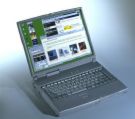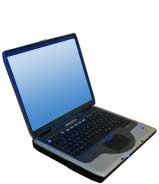which is better LPTOP or PERSONAL COMPUTER
By cool_divij
@cool_divij (197)
India
16 responses
@prncesssly (1373)
• United States
6 Nov 06
I personally like my laptop better than my desktop because I can take it wherever I want. I can sit on my couch and watch TV while being on the computer, or I can be in the comfort of my own bed. I can use it on a train, in a coffee shop, bookstore... it's very convenient!
1 person likes this
@bcl_me (582)
• Philippines
15 Jun 07
i prefer upgradability and high computing power, so i like desktop pc much better that laptop. Laptop is too expensive and can easily outdated and eventually outmoded and become garbage...while a desktop pc can always be updated cheaply and its parts can be sold separately...which way too far more advantageous that the laptop. Plus...you can even customized the casing which makes it really interesting...and there is even an international contest for designing a one of a kind computer casing...and I saw some was designed to look like a glass pyramid and will open up slowly as if the door of a spaceship to reveal the computer screen and you can start using it.
@JulietsMom777 (1182)
• United States
7 Nov 06
A personal computer is good because you have use of it at home and a laptop is great because you be in bed or on the couch using it. You can also take your laptop with you. I think having both is good.
@classact (1394)
• India
22 Dec 06
laptop
A laptop computer or simply laptop (also notebook computer or notebook) is a small mobile personal computer, which usually weighs 2.2-12 pounds (1-6 kilograms), depending on size, materials and other factors.
While the terms laptop and notebook are often used interchangeably, "laptop" is the older term, introduced in 1983 with the Gavilan SC. "Notebook computer" is a later coinage, which was used to differentiate smaller devices such as those of the NEC UltraLite and Compaq LTE series in 1989, which were, in contrast to previous laptops, the approximate size of an A4 paper sheet.[1] The terms are imprecise: due to heat and other issues, many laptops are inappropriate for use on one's lap, and most notebooks are not the size of typical A4 paper notebook. Although some older portable computers, such as the Macintosh Portable and certain Zenith TurbosPort models, were sometimes described as "laptops", their size and weight were too great for this category.
Laptops usually run on a single battery or from an external AC/DC adapter which can charge the battery while also supplying power to the computer itself.
As personal computers, laptops are capable of the same tasks as a desktop PC, although they are typically less powerful for the same price. They contain components that are similar to their desktop counterparts and perform the same functions, but are miniaturized and optimized for mobile use and efficient power consumption. Laptops usually have liquid crystal displays and most of them use different memory modules for their random access memory (RAM), for instance, SO-DIMM in lieu of the larger DIMMs. In addition to a built-in keyboard, they may utilize a touchpad (also known as a trackpad) or a pointing stick for input, though an external keyboard or mouse can usually be attached.
Ultraportables
Laptops with screens typically less than 12 inches diagonally and a weight of less than 1.7kg. Their keyboards are usually not full-size. Their primary audience is usually business travelers, who need small, light laptops. Ultraportables are often very expensive, have extended battery and/or battery life, house power-saving CPUs and almost always have integrated graphics.
Thin-and-lights
Laptops usually weighing in between 1.8kg and 2.8kg with a screen size of between 12 and 14 inches diagonally.
Medium-sized laptops
These usually have screens of 15 - 15.4 inches diagonally and a weight of around 3-3.5kg. They usually sacrifice a little computing power for smaller dimensions and longer battery life, although the length and width are usually determined by the screen size.
Desktop replacement computers
Powerful laptops meant to be mainly used in a fixed location and infrequently carried out due to their weight and size; the latter provides more space for powerful components and a big screen, usually measuring 15 inches or more. Desktop replacements tend to have limited battery life, rarely exceeding three hours, because the hardware is not optimized for efficient power usage.
School Programs
Many schools have taken in laptop based programs in which every student receives a laptop for school use only. An operating system or other program is installed to limit the student's access to perform administrative tasks such as hardware or software installation, or operating system modifications. Students are generally permitted to use these systems to take notes, write papers, and perform other school-related activities
















